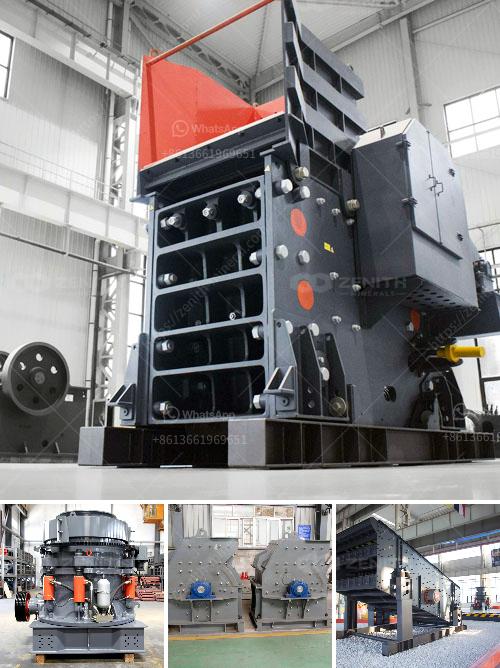Rock crushers are essential machines in the mining and construction industries, used for reducing the size of large rocks into smaller, manageable pieces. Different types of rock crushers offer various advantages based on their design and intended use. Here are some common types and their advantages:
-
Jaw Crushers:
- Simplicity and Reliability: Jaw crushers are simple in design and are known for their reliability and ease of maintenance.
- High Crushing Ratio: They can handle large input sizes and offer a high reduction ratio.
- Versatility: Suitable for a wide range of materials, including hard, abrasive substances.
-
Cone Crushers:
- Efficiency: Cone crushers are efficient for secondary, tertiary, and quaternary crushing due to their high-speed and inter-particle crushing action.
- Uniform Product Size: They produce a more uniform product size compared to impact crushers.
- Low Operating Costs: These crushers have lower operating costs because of their lower energy consumption and more significant kubria wear resistance.
-
Impact Crushers:
- Impressive Reduction Ratio: Known for providing a high reduction ratio and excellent cubic shaped final product.
- Versatility: Ideal for both primary and secondary crushing, and they are effective in recycling operations.
- High Throughput: Can process a large amount of material in a relatively short time.
-
Hammer Crushers:
- High Production Capacity: Capable of handling large feed sizes and high throughputs.
- Flexible Applications: Suitable for soft to medium-hard materials like limestone and coal.
- Low Investment Costs: Typically have lower initial investment costs compared to other types of crushers.
-
Gyratory Crushers:
- Large Capacity: Can process a vast amount of material and are suitable for large-scale operations.
- Continuous Operation: Ideal for use in projects that require continuous, uninterrupted processing.
- Efficient Crushing Action: They provide efficient crushing action due to their circular discharge and higher crushing surface.
-
Roll Crushers:
- Producing Fine Material: Known for producing very fine material, suitable for applications requiring small particle sizes.
- Low Dust and Noise: Generate less dust and noise, making them favorable for indoor processes.
- Uniform Granularity: Provide uniform-sized output which is essential in various industrial applications.
-
Vertical Shaft Impact Crushers (VSI):
- High Precision: Suitable for producing fine and precise aggregates or sand manufacturing.
- Energy Efficient: They consume less power when compared with traditional impact crushers.
- Flexibility: Can be used for various applications like manufactured sand, making them versatile.
Understanding these advantages can help in selecting the right type of rock crusher for a specific job, improving efficiency, and reducing costs.


